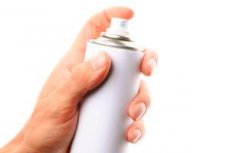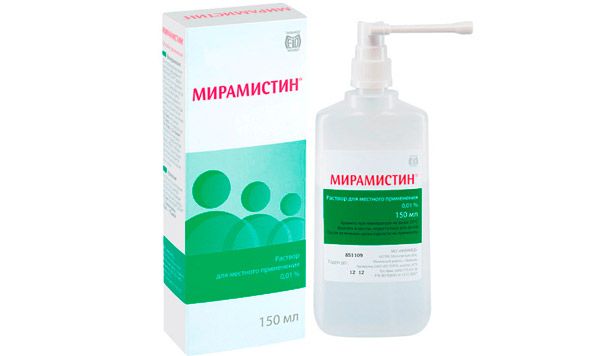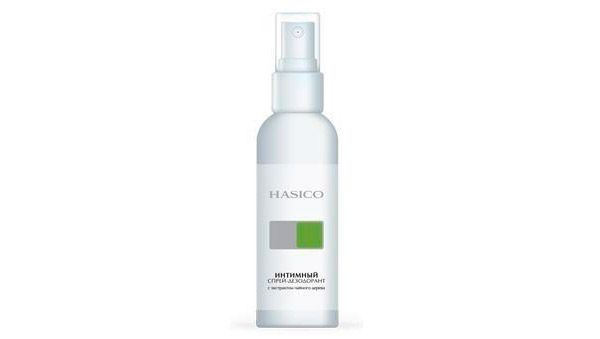Medical expert of the article
New publications
Preparations
Milk sprays
Last reviewed: 04.07.2025

All iLive content is medically reviewed or fact checked to ensure as much factual accuracy as possible.
We have strict sourcing guidelines and only link to reputable media sites, academic research institutions and, whenever possible, medically peer reviewed studies. Note that the numbers in parentheses ([1], [2], etc.) are clickable links to these studies.
If you feel that any of our content is inaccurate, out-of-date, or otherwise questionable, please select it and press Ctrl + Enter.

In what cases is a spray used for thrush?
Thrush (also known as candidiasis) is considered one of the most common fungal infections found in humans. The Candida fungus is part of the normal healthy microflora that is constantly present on the surface of the skin and mucous tissues. However, under certain circumstances, it begins to actively multiply, disrupting the natural bacterial balance in the body. Thrush causes a lot of discomfort, accompanied by itching, unpleasant odor and other unpleasant symptoms.
A spray for thrush is one of the most convenient forms of antifungal drugs, which has become very widely used in recent years. There are not many such sprays, but they are all effective in their own way and have their own indications and contraindications.
Indications thrush sprays
Anti-thrush spray can be used for various types of candidiasis.
- A superficial form of thrush, which occurs with damage to the skin and mucous membranes (mainly folds).
- Interdigital thrush is a disease typical for owners of garden and vegetable plots.
- Thrush of the mucous membranes - includes lesions of the oral cavity and (or) genitals.
- Oral thrush (angular cheilitis) – can occur independently or in combination with lesions of the oral cavity and tongue.
- Nail thrush (paronychia and onychia).
- Thrush in the form of candidal balanitis, balanoposthitis and vulvovaginitis (sometimes in combination with urethritis).
- Levurid (candidamicid) is a disease that is a special hypersensitivity of the body to the candida fungus and its waste products. Levurid is a specific allergic disease.
Most of the listed diseases are treated in a complex manner, using tablets, ointments, solutions. At the same time, a spray for thrush can be one of the main methods of treatment.
 [ 3 ]
[ 3 ]
Release form
Epigen
|
|
Pharmacodynamics Pharmacokinetics |
The active ingredient of the spray for thrush is glycyrrhizic acid, obtained from the rhizome of licorice. The acid acts as an immunostimulant, stops the inflammatory process, and soothes irritated skin. The solution accumulates in the area of application, practically not entering the systemic circulation. |
Contraindications for use |
Increased likelihood of hyperreaction of the body. |
Side effects |
There is a possibility of an allergic reaction. |
How to use sprays for thrush |
Epigen spray for thrush is sprayed using a vaginal nozzle, 3-4 times a day. Duration of therapy is up to 10 days. If the doctor deems it necessary, he can prescribe a repeat course 10 days after the initial treatment. |
Overdose |
There have been no cases of overdose with the spray. |
Interactions with other drugs |
Epigen spray is well combined with antibacterial drugs, antiseptics, analgesics, non-steroidal anti-inflammatory drugs. It is recommended to combine the spray with antiviral drugs and antibiotics. |
Storage conditions |
The spray for thrush is stored in darkened rooms at room temperature. |
Best before date |
Store the spray in a sealed container for up to 3 years. |
Panavir
|
|
Pharmacodynamics Pharmacokinetics |
A spray for thrush based on heteroglycoside, which provides antiviral, immunomodulatory, restorative and anti-inflammatory properties of the drug. Panavir acts against viruses, bacteria, fungi. Traces of the active ingredient may be found in the bloodstream, but this amount of the drug in the blood has no clinical significance. |
Contraindications for use |
The spray is not prescribed if there is a possible intolerance to the drug. |
Side effects |
In extremely rare cases, an allergic reaction may develop. |
How to use sprays for thrush |
The spray for thrush is used externally or intravaginally. For these purposes, a special nozzle for the sprayer is included in the kit. Spraying is carried out twice a day, until the condition is completely stabilized and the symptoms of the disease are relieved. It is recommended to continue treatment for another 5 days after the condition has been relieved. |
Overdose |
Medical professionals have not reported any cases of overdose with the spray. |
Interactions with other drugs |
No negative interactions of other medications with Panavir spray have been found. |
Storage conditions |
It is recommended to store Panavir spray within the temperature range of +5°C - +25°C. |
Best before date |
Up to 5 years. |
Miramistin
|
|
Pharmacodynamics Pharmacokinetics |
Miramistin is a powerful antimicrobial spray for thrush, and not only. It is active against: - to streptococci, pseudomonas, Escherichia, Klebsiella; - to aerobes and anaerobes; - to ascomycetes, yeast-like fungi; - to dermatophytes and other pathogenic fungi; - to viruses; - to chlamydia, treponema, trichomonas, neucheria, etc. Miramistin is not absorbed through the skin and mucous membranes. |
Contraindications for use |
The spray is not prescribed in case of intolerance to the composition of the drug. |
Side effects |
Rarely - a slight burning sensation that disappears within a few seconds. |
How to use sprays for thrush |
Injection is carried out 1-2 times a day for 10 days. |
Overdose |
No such cases have been observed. |
Interactions with other drugs |
A combination of Miramistin and other antimicrobial drugs is recommended. This enhances the antibacterial and antifungal action of Miramistin. |
Storage conditions |
The spray is stored in rooms with temperatures up to +25°C. |
Best before date |
Up to 3 years. |
Hasiko
|
|
Pharmacodynamics Pharmacokinetics |
Intim spray is made on the basis of tea tree extract. It has antiseptic properties, creates a protective barrier on the skin and mucous membranes. Contains urea and lactic acid - these components help to balance the pH level of the vaginal environment. The drug does not penetrate into the systemic bloodstream. |
Contraindications for use |
Not recommended for use in case of individual hypersensitivity to the composition of the drug. |
Side effects |
In extremely rare cases, an allergic reaction may develop. Hasiko spray is considered a hypoallergenic product. |
How to use sprays for thrush |
The spray is sprayed twice a day, in the morning and at night, until the symptoms of thrush have completely disappeared, plus 5 days. The product can be used as a preventive measure - before and after sexual contact. |
Overdose |
There was no information about the possibility of overdose. |
Interactions with other drugs |
The product interacts well with other medications, including those of local action. |
Storage conditions |
The spray for thrush is stored at room temperature, in a dark place. |
Best before date |
Up to 2 years. |
Oral Thrush Sprays
For the treatment of oral thrush, the spray form of the drug is the most suitable. It is convenient to use, and the solution contained in the bottle easily penetrates into all the folds and hard-to-reach areas of the oral cavity.
Miramistin spray is excellent for treating oral thrush - it contains an antifungal antiseptic solution suitable for treating both skin and mucous membranes (including in children).
The use of the spray is contraindicated for the youngest children, as it can cause the development of laryngospasm. In early childhood, it is appropriate to use special ointments and aseptic solutions for oral thrush.
If thrush has appeared in the mouth, then there is no point in expecting the disease to go away on its own: the fungal infection will only progress. Therefore, a spray for thrush can have the same fast and effective effect that is expected of it. For example, Miramistin can be bought at almost any pharmacy, and if it is not available, the pharmacist will recommend an analogue of the drug that can be used to treat thrush in the mouth.
 [ 4 ]
[ 4 ]
Use thrush sprays during pregnancy
Thrush that begins during pregnancy is not uncommon, as the activation of the fungus is often caused by hormonal changes in the body. And with the onset of pregnancy, the level of hormones changes almost every hour.
According to statistics, every third pregnant woman is affected by Candida fungus. If the disease is not treated, the infection can spread to the fetus, affecting the umbilical cord, skin and mucous membranes of the unborn child.
How can a pregnant woman treat thrush?
First of all, a taboo: self-medication, especially during pregnancy, is strictly prohibited. The treatment regimen should be prescribed by a doctor, taking into account the peculiarities of the course of the gestation process, as well as other concomitant diseases of the woman.
The doctor can prescribe antifungal drugs at his/her discretion, but recently sprays have been most often prescribed - convenient and effective remedies for thrush. The Epigen Intim spray is in great demand among pregnant women. It is used three times a day, spraying into the area of the external genitalia, retreating no more than 5 cm. After external spraying, you should change the nozzle to another (intravaginal) and spray the product deep into the vagina. For high-quality antifungal action, two or three presses on the sprayer are usually enough.
The standard course of treatment with spray during pregnancy is 7-10 days.
On the doctor’s recommendation, the spray for thrush can also be used for preventive purposes, which may be relevant after 37-38 weeks of pregnancy.
Attention!
To simplify the perception of information, this instruction for use of the drug "Milk sprays" translated and presented in a special form on the basis of the official instructions for medical use of the drug. Before use read the annotation that came directly to medicines.
Description provided for informational purposes and is not a guide to self-healing. The need for this drug, the purpose of the treatment regimen, methods and dose of the drug is determined solely by the attending physician. Self-medication is dangerous for your health.





